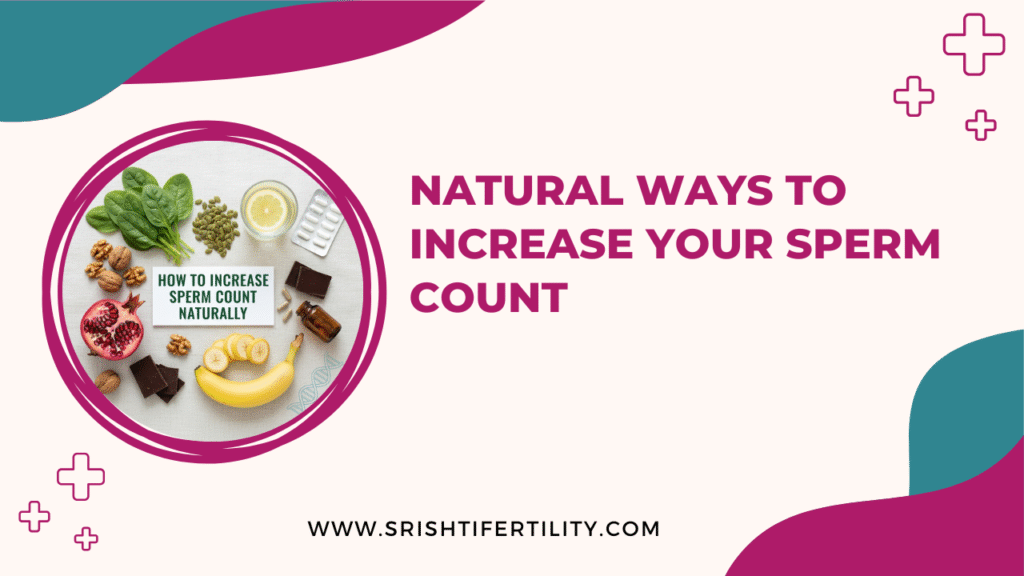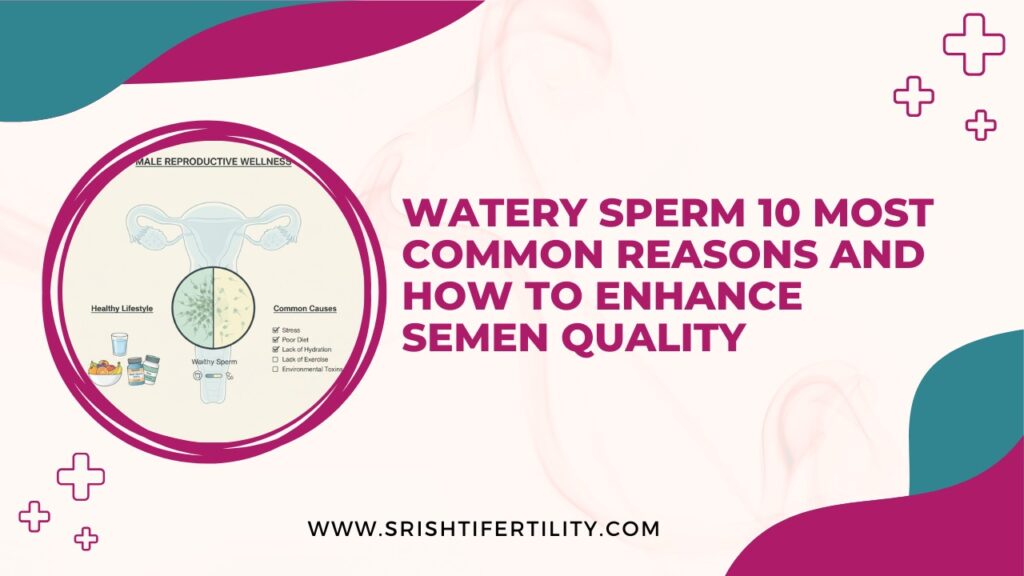How to Improve Egg Quality and Boost Fertility Naturally
One of the most important facets of a woman’s reproductive health is her fertility. To many who try, knowing how to improve egg quality makes all the difference between success and frustration. Healthy eggs are crucial for conception, embryo development, and successful pregnancy. Fortunately, it is not just all about medical treatments to improve egg quality; natural methods, nutrition, and mindfulness can have a powerful impact. At SrishtiIVF, holistic fertility care is promoted, where science and lifestyle with nutrition go hand in hand to help women comprehend exactly how to improve egg quality naturally to enhance their conception chances. Understanding Egg Quality Before exploring how to improve egg quality, it’s important to know what egg quality really means. Egg quality refers to the ability of an egg (ovum) to be fertilized and develop into a healthy embryo. As a woman gets older, especially past the age of 35, both the number and quality of the eggs start to decline. Poor oocyte quality means fertilization, or healthy embryo development, may be impaired, while problems such as infertility, miscarriages, or even failure in IVF cycles may result. Signs of Bad Egg Quality One of the biggest questions many women face when trying to conceive is how to identify the signs of bad egg quality. While generally there are no symptoms, several telltale signs may signal lesser quality eggs: If you see these signs of poor egg quality, it is a good time to assess your health and take some natural steps to renew the quality of your eggs. Factors That Influence Egg Quality To understand how to improve egg quality, you must identify what affects it. Some common factors that influence egg quality include: Fortunately, you can learn how to enhance egg quality naturally and improve fertility by targeting these factors. How to Naturally Improve Egg Quality Naturally improving egg quality involves nutrition, lifestyle modifications, and stress management. The following are scientifically and fertility expert-approved ways to improve your eggs. 1. Eat a Fertility-Enhancing Diet A nutrient-rich diet is at the core of how to improve egg quality. Incorporate these fertility superfoods into your diet: Other beneficial foods include those rich in folate, zinc, and CoQ10 to effectively improve egg quality. 2. Manage Stress and Sleep Well Poor sleep and chronic stress are silent fertility killers. Under stress, cortisol and prolactin levels rise, interfering with ovulation. Meditation, yoga, deep breathing, or mindfulness are excellent natural remedies for handling stress. Get 7 to 8 hours of good-quality sleep per day. Rest allows your body to repair cells, including reproductive ones — yet another natural way on how to improve egg quality. 3. Moderation in Exercise Moderate physical activity enhances blood circulation to the ovaries and helps maintain hormonal balance. Activities like brisk walking, swimming, or light yoga are ideal, but too much exercise can increase stress hormones. For women working on how to improve egg quality, consistency is more important than intensity. 4. Take the Right Supplements Supplements can provide nutrients your body may not get from food. Following are some recommendations from fertility experts for women learning how to improve egg quality naturally: It is always important to consult a fertility specialist prior to taking any supplements. 5. Maintain a Healthy Weight Hormonal imbalances can cause ovulation issues and poor egg quality in both underweight and overweight women. A balanced diet with regular activity helps maintain the ideal BMI. A healthy weight improves insulin sensitivity and hormone levels — an important factor when focusing on how to improve egg quality for better fertility. 6. Avoid Environmental Toxins Toxic chemicals in plastics, pesticides, and cosmetics disrupt hormones and can damage egg cells. Avoid food storage in plastic containers, use organic produce, and switch to clean beauty products. One highly underrated but powerful part of how to improve egg quality naturally is minimizing toxin exposure. 7. Hydrate Water supports nutrient transport and enables cellular function. Dehydration impairs cervical mucus and egg cell health. It is recommended to drink 8–10 glasses of water daily. Simple it may be, but hydration can make a big difference in how to improve egg quality and help childless couples conceive. Medical Support for Egg Quality Improvement While natural methods tend to work beautifully, sometimes medical assistance becomes necessary. Other treatments that work to enhance ovarian performance include PRP-ovarian rejuvenation therapy, DHEA supplements, and antioxidant therapies. If natural remedies have been tried and you still have problems concerning the signs of bad egg quality, consult fertility experts at SrishtiIVF. Their team is dedicated to advanced fertility care, guiding women on how to improve egg quality through both medical and holistic approaches. Lifestyle Habits to Support Reproductive Health To sum up the best practices for how to improve egg quality, follow these habits: Consistency with these steps can greatly enhance fertility and overall well-being. Conclusion The quality of the egg is very important for conceiving and maintaining pregnancy. By knowing how to improve your egg quality, you are taking ownership of your fertility. The right approach — with nutrition, supplements, stress control, and lifestyle changes — works wonders when followed consistently. At SrishtiIVF, we believe fertility is not only a medical condition but a journey into health, hope, and balance. The right guidance can help enhance natural fertility and bring your dream of parenthood closer to reality. Keep in mind that small daily choices make big differences on how to improve the quality of your eggs and reach your fertility goals. FAQs 1. What are the main causes of poor egg quality? Aging, stress, poor diet, and medical conditions like PCOS or thyroid disorders can cause poor egg quality. 2. Can diet help improve egg quality? Yes, a nutrient-rich diet with antioxidants, omega-3s, and vitamins plays a vital role in how to improve egg quality naturally. 3. How long does it take to improve egg quality naturally? It typically takes 3–4 months of consistent lifestyle changes to see noticeable results. 4. Are there any medical treatments to improve egg quality?
How to Improve Egg Quality and Boost Fertility Naturally Read More »






